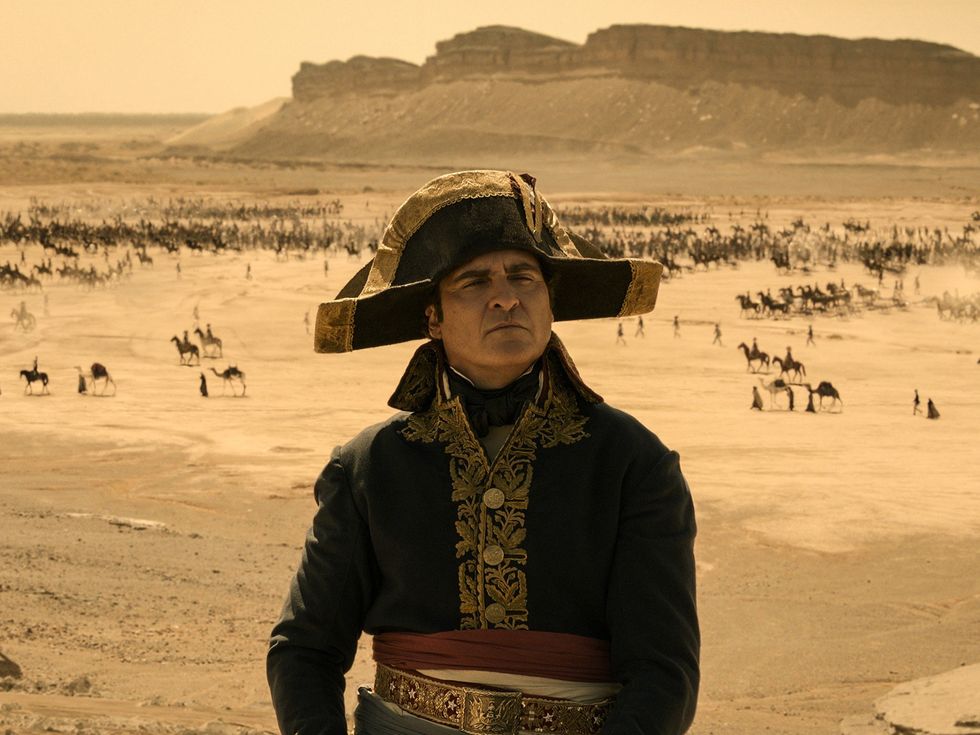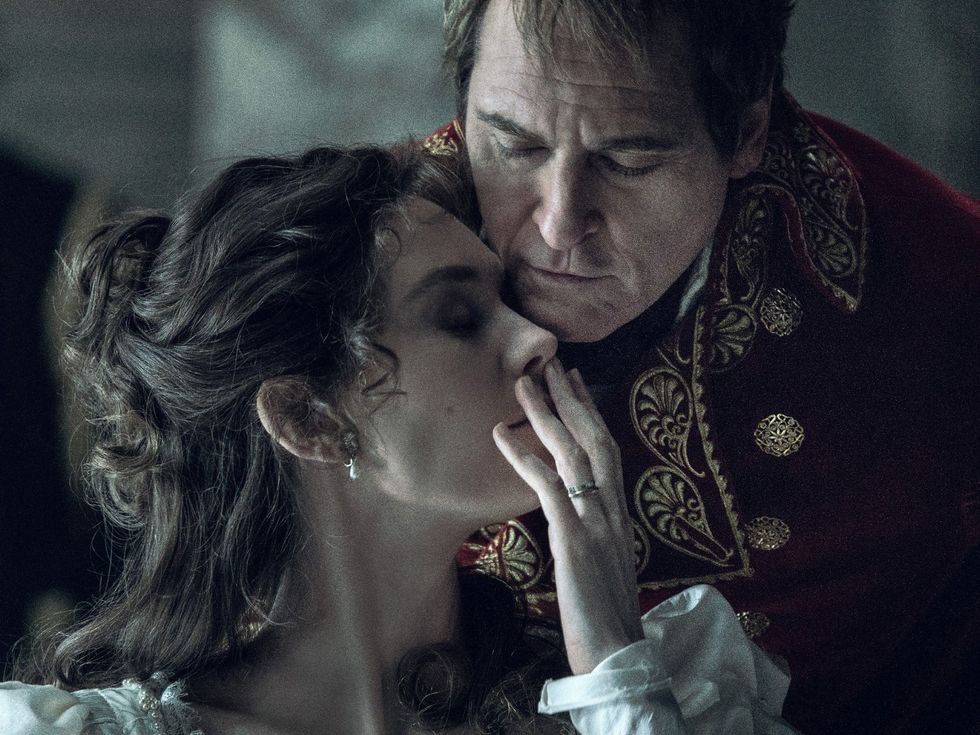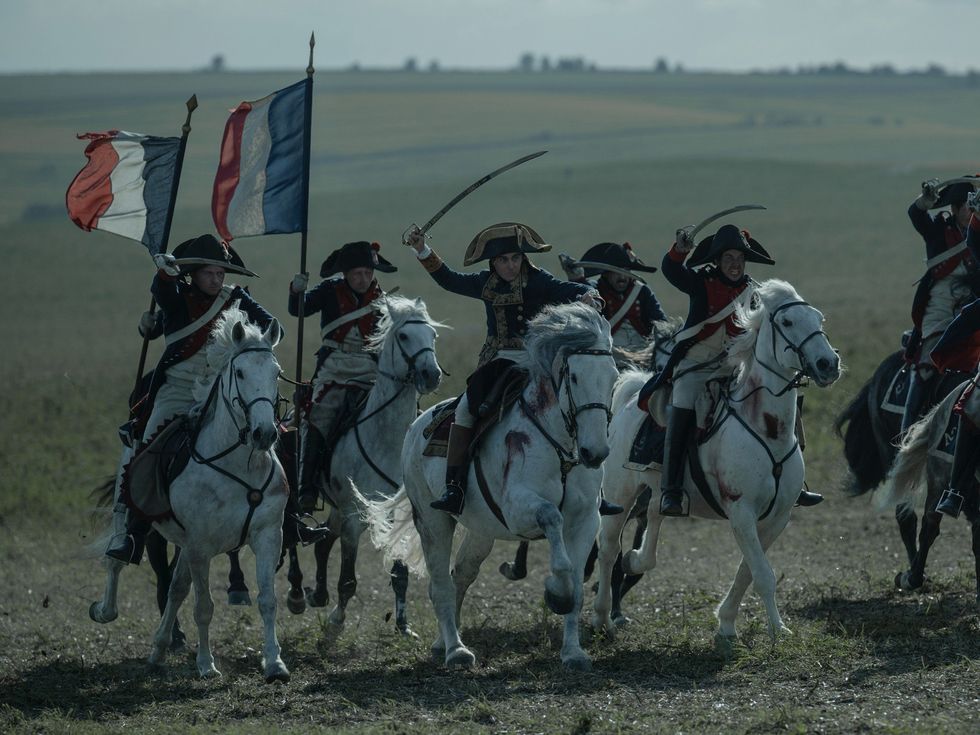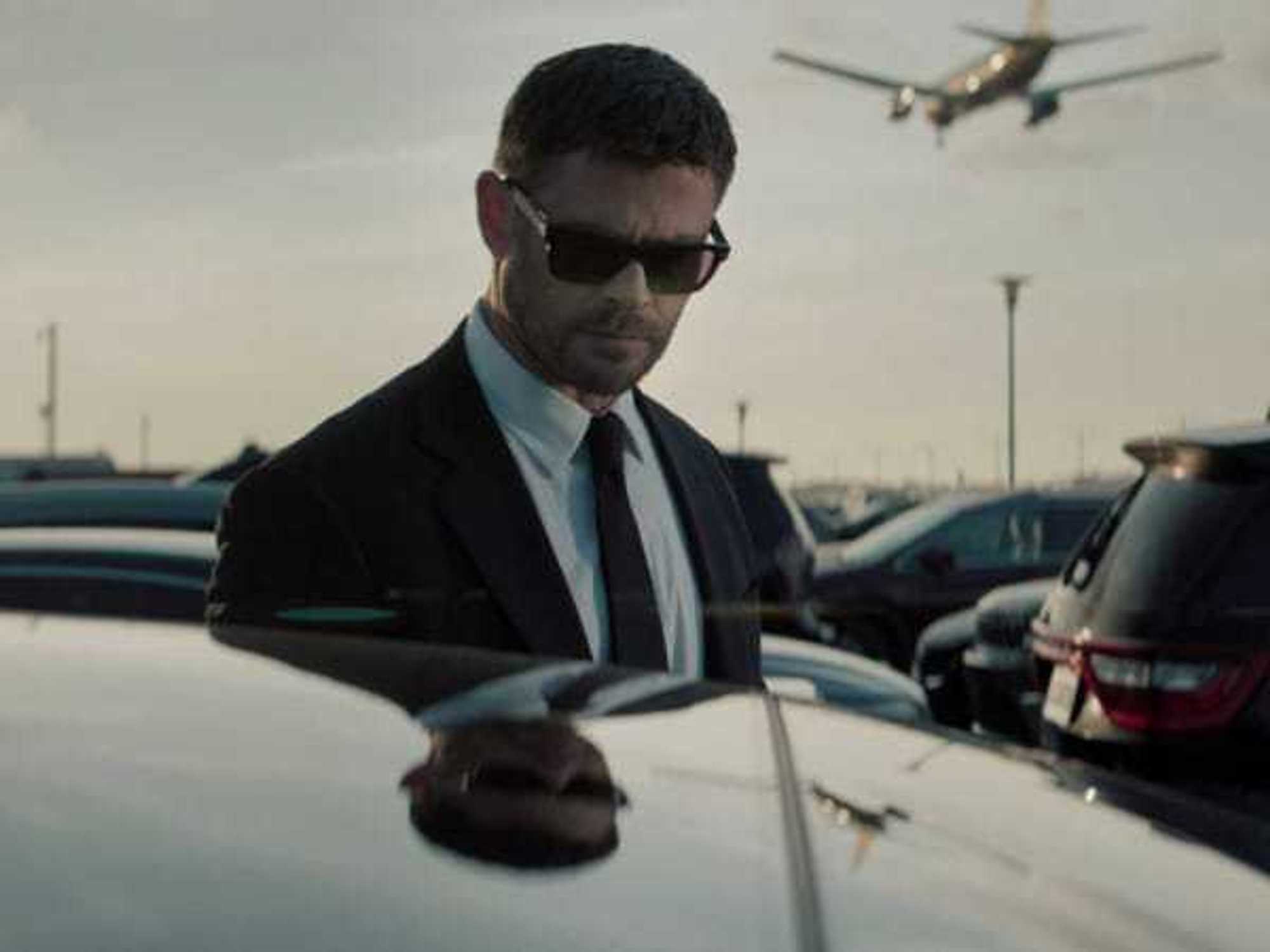Movie Review
Complexity of Napoleon brings it down despite its epic size
Napoleon Bonaparte is a historical figure who has a mythic feel thanks to the many retellings of his life, and because he has a complex named after him that gets brought up any time a short person comes to power. Still, if a full retelling of Napoleon’s personal life and time as the leader of France exists on film, it’s been a long time since anyone attempted it.
Director Ridley Scott has taken on that challenge with Napoleon, starring Joaquin Phoenix as the late 18th/early 19th century military commander. It follows him through most of his adult life, from his rise amid the French Revolution, to establishing himself as a brilliant military tactician, to attaining the position of Emperor following a coup d’etat, each of which was due in large part to the many battles in which he fought and won across Europe.
The film pays equal attention to his relationship with Josephine de Beauharnais (Vanessa Kirby), although calling it a romance would be inaccurate. The film portrays his interest in her as far outweighing hers in him, with Napoleon constantly trying to check in on Josephine from afar while she continues her pre-marriage ways of jumping into bed with whomever she pleases.
Scott, working from a script by David Scarpa, has made an epic-sized movie that is strangely uninteresting. Perhaps it’s a result of trying to cover so many aspects of Napoleon’s life, but little of the film is comprehensible for anyone who doesn’t have a strong knowledge of his biography. The intricacies of the French political system and the various warring countries in Europe at the time all blend together in the film, with the only thing that’s clear is that Napoleon managed to find a way to involve himself in all of it.
What does make an impact are the efforts he would personally go to in order to ensure that he had a tactical advantage over his opponents. There are several examples of him scouting an enemy’s position to formulate a plan, and then see that plan go exactly like he predicted, which makes his influence and rise to power all the more understandable.
That is juxtaposed with his ineptitude with Josephine. It’s here that his feelings of inadequacy truly start to show, as he desperately tries to prove himself to a mostly disinterested Josephine. But Scott and Scarpa never find a great way to evolve the interactions between the couple, and so most of the time spent with them is tedious to the point of boredom.
Phoenix has put in some great performances over the years, but this is not one of them. He’s not actively bad in the role, but he just doesn’t seem to be a great fit for it. Kirby, initially given a god-awful wig to wear, has some nice moments, but nothing compared to her parts in Mission: Impossible or Pieces of a Woman. All of the supporting characters are just that, with no one standing out save for maybe Rupert Everett in a few scenes as Arthur Wellesley, the Duke of Wellington.
History buffs may relish the chance to have Napoleon’s many exploits given a big screen extravaganza, but they may be the only ones who are able to track his progress to power in Scott’s version of events. The film is epic in scale, but it’s also lackluster in its execution.
---
Napoleon is now playing in theaters.



